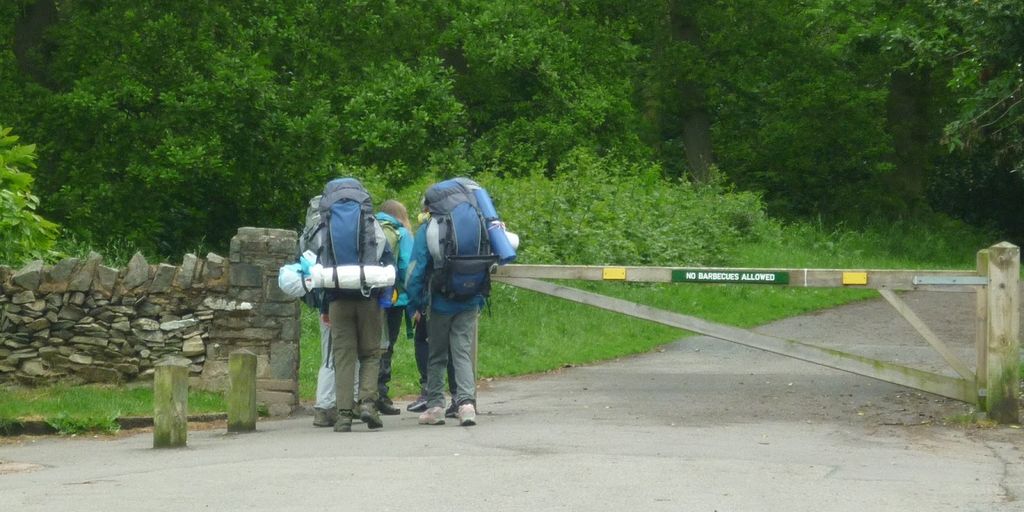
In today’s fast-paced world, finding the right activities to boost your child’s learning can be a challenge. However, combining education with fun can make a significant difference. From science experiments to virtual field trips, there are numerous engaging activities that can enhance your child’s cognitive and social development. This article explores the top educational activities that can help your child learn and grow while having fun.
Key Takeaways
- Science experiments can ignite curiosity and enhance problem-solving skills.
- Cooking teaches children about math, science, and nutrition in a practical setting.
- Virtual field trips provide exposure to new places and cultures without leaving home.
- Geocaching promotes physical activity and teaches navigation and geography skills.
- Starting a business can instill entrepreneurial skills and financial literacy in children.
1. Science Experiments

Science experiments are a fantastic way to engage your child’s curiosity and foster a love for learning. Interactive, explosive (in a safe way) and thrilling experiments instill a love of science and investigation. Think Mentos in Coke and Homemade Volcanoes.
Easy At-Home Experiments
Science doesn’t have to be complicated! Try these easy science experiments using items you already have around the house or classroom.
Benefits of Science Experiments
- Encourages critical thinking
- Enhances problem-solving skills
- Promotes hands-on learning
Getting Started
- Choose a simple experiment.
- Gather all necessary materials.
- Follow the steps carefully.
- Discuss the results with your child.
Science experiments can be a gateway to a lifelong interest in science and technology. They provide a hands-on approach to learning that is both fun and educational.
2. Cooking

Cooking is a fantastic way to engage children in a variety of educational activities. Teaching children to cook will help them to become aware of hazards in the kitchen and develop essential life skills.
Menu Math: Turning the Kitchen into a Hands-On Math Classroom
Your kitchen can transform into a dynamic learning space where math comes alive. From adding and subtracting ingredients to measuring, converting units, and exploring fractions, the possibilities are endless.
- Menu planning and cost estimating: Involve your child in planning meals and estimating grocery costs. This teaches them budgeting and financial literacy skills.
Science in the Kitchen
Cooking is just chemistry. When we cook food, an array of physical and chemical processes transform the ingredients to cook away.
Developing Planning and Time Management Skills
Cooking helps to develop a child’s planning and time management skills. They learn to follow recipes, manage their time, and understand the importance of preparation.
Cooking offers a unique blend of practical skills and educational benefits, making it an ideal activity for children of all ages.
3. Virtual Field Trips

Virtual field trips offer an incredible way to explore the world without leaving home. These experiences can be both educational and entertaining, providing a unique opportunity for children to learn about various subjects in an immersive manner.
4. Geocaching

What is Geocaching?
Geocaching is an outdoor activity that allows you to explore your surroundings like you never have before. It combines technology and adventure, making it a fun way to get kids outdoors and moving.
Benefits of Geocaching
- Enhances problem-solving skills
- Expands spatial awareness
- Encourages teamwork
How to Get Started
- Download a geocaching app.
- Create an account.
- Search for geocaches in your area.
- Follow the GPS coordinates to find the hidden treasures.
Want a real-life treasure hunt? Geocaching is an exciting way to explore the outdoors while using technology to navigate and search for hidden treasures. Give it a try!
5. Podcasts

Podcasts are a fantastic way to engage your child’s mind and expand their knowledge on various topics. Introduce them to podcasts that cater to their interests. For instance, if they love science, try Brains On!; if they enjoy storytelling, What If World is a great choice. These podcasts often feature scripted adventures through science, history, and culture, along with fun quizzes.
Benefits of Listening to Podcasts
- Enhances listening skills
- Expands vocabulary
- Stimulates imagination
How to Find the Right Podcast
- Search for educational podcasts on platforms like Spotify or Amazon Music.
- Look for playlists that align with your child’s curriculum.
- Explore YouTube for educational content.
When children hear, their grasping power amplifies. Kids learn new things by letting them listen to educational playlists.
Recommended Podcasts
- Brains On!
- What If World
- Who Smarted?
By incorporating podcasts into your child’s routine, you can make learning both fun and effective.
6. Mini Beast Hunt

A Mini Beast Hunt is an exciting way for children to explore their natural environment and search for bugs, butterflies, and spiders. This activity not only feeds kids’ curiosity but also expands their observation skills and appreciation for nature.
What You Need
- Magnifying glasses
- Bug catchers
- A kindergarten minibeast hunt checklist
How to Conduct a Mini Beast Hunt
- Choose a safe outdoor area like a garden or park.
- Equip your child with magnifying glasses and bug catchers.
- Use the checklist to identify and tick off different mini beasts.
- Encourage your child to observe the insects closely and note their features.
Bold: A Mini Beast Hunt is a fantastic way to engage children with the natural world around them.
Benefits of a Mini Beast Hunt
- Enhances observation skills
- Encourages curiosity and exploration
- Provides hands-on learning about different insects and their habitats
7. Starting a Business

Benefits of Starting a Business
Starting a business can be an incredibly rewarding experience for children. It teaches them about financial independence, the value of hard work, and entrepreneurial skills. Encouraging your children to start a small business can also boost their confidence and problem-solving abilities.
Types of Businesses
There are various types of businesses that children can start, such as:
- Lemonade stands
- Craft sales
- Pet sitting
- Kid sticker business start-up kit
Steps to Get Started
- Identify a business idea.
- Create a simple business plan.
- Gather necessary materials.
- Start small and scale up gradually.
Educational Resources
Utilize resources like the Young CEO Squad’s startup business kit to provide your child with the tools they need to succeed. Books like "Arthur’s Pet Business" can also be a great way to teach entrepreneurship through storytelling.
Starting a business at a young age can be a game-changer for your child’s development. It not only teaches them valuable life skills but also instills a sense of responsibility and achievement.
8. Photography

Photography is a fantastic way for children to explore their creativity and learn new skills. Learning to take good photographs teaches kids how to analyze situations. When taking a picture, they need to be aware of the environment and light and what would look good.
Nature Photography
Capture the beauty of winter landscapes, plants, and animals through photography. This activity encourages kids to explore, observe, and connect with the natural world.
Simple Photography Projects
Doing a few simple photography projects together can benefit you and your child. Here are seven photography explorations you can do with your child:
- Nature Walks
- Portrait Sessions
- Macro Photography
- Shadow Play
- Color Hunts
- Seasonal Changes
- Wildlife Watching
Creative Kids Photoshoot Ideas
Here are some innovative photography ideas for kids:
- Twinning
- Tasty Treat
- Little Picasso
- Just Swinging By
- Fun in a Flower Field
- Footnotes
Photography not only fosters creativity but also helps children develop a keen eye for detail and an appreciation for the world around them.
9. Star Gazing

Star gazing can be educational in many ways. Your children will learn about history and about how each of the days of the week were named after objects in the sky. Star gazing can be educational in many ways.
10. Designing a Roblox Game

Designing a Roblox game is an excellent way for children to learn coding, problem-solving, and creativity. Building and creating games teaches your kids about coding, dealing with challenges, and resilience. Here are some steps to get started:
Getting Started
- Create an Account: Sign up for a Roblox account if you don’t already have one.
- Download Roblox Studio: This is the platform where you will design and build your game.
- Explore Tutorials: Roblox offers a variety of tutorials to help you get started.
Basic Game Design
- Choose a Game Type: Decide what kind of game you want to create—adventure, puzzle, or simulation.
- Design the Environment: Use Roblox Studio to create the game’s setting.
- Add Characters and Objects: Populate your game with characters and interactive objects.
Coding with Lua
- Learn Lua Basics: Lua is the programming language used in Roblox. Start with basic commands.
- Implement Game Mechanics: Use Lua to add functionality to your game, such as character movements and object interactions.
- Test and Debug: Regularly test your game to find and fix any issues.
Publishing Your Game
- Save Your Work: Make sure to save your game frequently.
- Publish to Roblox: In the menu bar, click File, then select Publish to Roblox. The publish game window displays.
- Share with Friends: Once published, share your game with friends and family.
Designing a Roblox game not only makes learning fun but also equips your child with valuable skills for the future.
Conclusion
Incorporating a variety of educational activities into your child’s routine can significantly enhance their learning experience and cognitive development. From science experiments and cooking to virtual field trips and geocaching, these activities not only make learning fun but also provide practical skills and knowledge. By engaging in these activities, children can explore their interests, develop new skills, and build a strong foundation for lifelong learning. Remember, the key is to make education enjoyable and interactive, so your child remains curious and motivated to learn. Choose activities that resonate with your child’s interests and watch them thrive academically and personally.
Frequently Asked Questions
What are some good learning activities for kids?
Good learning activities include reading, writing, educational games, brain teasers, and experiments.
How can we make education fun for kids?
Incorporate multimedia elements, interactive quizzes, storytelling, and gamified learning to make education more engaging and participatory.
What kind of activities are good for children?
Activities that stimulate cognitive, motor, communication, and social-emotional skills are beneficial for children. This includes hands-on projects, outdoor adventures, and interactive learning experiences.
Can you suggest some educational games or apps that are both enjoyable and enriching for young learners?
Apps like Duolingo, BrainPOP, and Tynker offer interactive, educational content that entertains and educates young learners.
What are some creative ways to make online learning activities more engaging for kids?
Incorporate multimedia elements, interactive quizzes, storytelling, and gamified learning to make online activities more engaging and participatory.
Why is it important to provide a variety of experiences for young children?
Providing a variety of experiences helps young children’s brains create new connections or neural pathways, which is crucial for their cognitive development.






